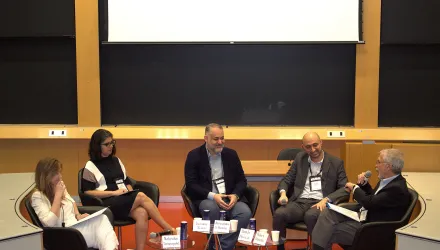Abstract
Climate change is a global "free rider" problem because significant abatement of greenhouse gases is an expensive public good requiring international cooperation to apportion compliance among states. But it is also a global "free driver" problem because geoengineering the stratosphere with reflective particles to block incoming solar radiation is so cheap that it could essentially be undertaken unilaterally by one state perceiving itself to be in peril. This paper develops the main features of a "free driver" externality in a simple model based on the asymmetric consequences of type-I and type-II errors. I propose a social-choice decision architecture embodying the solution concept of a supermajority voting rule and derive its basic properties. In the model this supermajority voting rule attains the socially optimal cooperative solution, which is a new theoretical result around which the paper is built.
Martin L. Weitzman, Harvard University
Weitzman, Martin L.. “A Voting Architecture for the Governance of Free-Driver Externalities, with Application to Geoengineering.” Harvard Project on Climate Agreements, Belfer Center, May 2013



